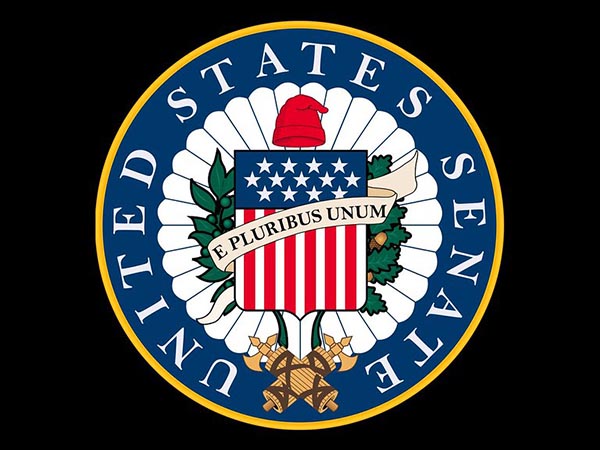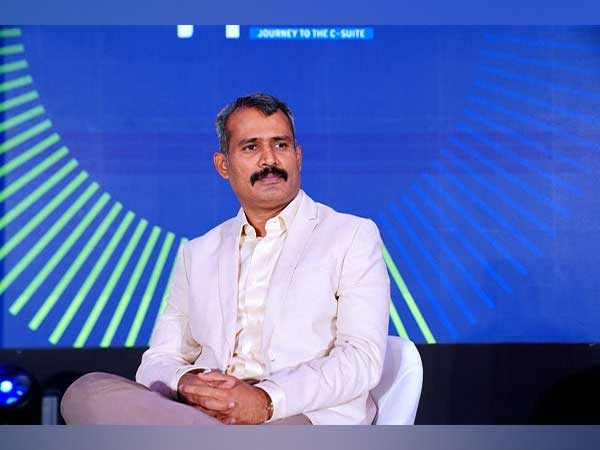
John Thune elected new Republican Senate leader
Nov 14, 2024
New York [US], November 14: Senate Republicans have elected John Thune, the long-serving senator from South Dakota, as their new leader in the chamber.
The 63-year-old won a secret ballot on Wednesday, defeating Florida Senator Rick Scott - the preferred choice of many of Donald Trump's most vocal allies - and Texas Senator John Cornyn. Scott was eliminated in the first round.
In a statement, Thune said he was "extremely honored" and stood "united behind President Trump's agenda".
The Republican Party won a 53-47 majority in the Senate last week, flipping control of the upper chamber as Trump secured his own return to the White House.
Thune will take over from Kentucky Senator Mitch McConnell, who is stepping down from the top Republican leadership post after 18 years.
The South Dakota Senator will serve for at least the next two years, with his term kicking off when the 119th Congress begins in January.
As Senate majority leader, he will be the chief spokesperson for the Republican conference's positions on issues, as well as controlling the flow of all legislative business through his chamber as well as the confirmation of Trump-nominated judges and cabinet members.
McConnell, 82, was the longest-serving party leader in US history and played a key role in remaking the US Supreme Court and much of the federal judiciary.
But he has faced growing resistance from within a caucus that has drifted towards Trump over the past decade. In February, he announced that he would end his leadership tenure but planned to complete his Senate term, which ends in January 2027.
The announcement sparked anticipated bids from Thune, the current minority whip, and Cornyn, who has previously served as Republican whip.
But Scott, who launched a renegade challenge to McConnell two years ago, also threw his hat into the ring.
Viewed as the most hard-line conservative option of the trio, Scott quickly garnered support in his long-shot bid from top Trump supporters, including Elon Musk and Tucker Carlson, and Trump-world's most visible media allies. Thune and Cornyn are viewed as McConnell allies with close ties to the Republican Party's establishment wing.
Despite the leadership race being contested as a secret ballot, eight senators publicly endorsed Scott ahead of Wednesday's vote, as Mr Carlson and others urged grassroots Republicans to pressure their representatives to get behind the Florida Senator.
But Scott lost in the first round after winning the backing of only 13 of his colleagues. Cornyn earned 15 votes and Thune received 23, four short of the majority needed to win the race.
In the second round, Thune beat Cornyn by a margin of 29 to 24.
Scott - who has long chafed under McConnell's leadership - meanwhile thanked those "who supported my run and made their voices heard to demand change".
Though Trump himself did not make his opinions about the contestants public, Thune's victory and Scott's early defeat will be seen by some as a sign of Senate Republicans reasserting their independence and electing a seasoned party leader trusted by his colleagues.
Thune raised more than $31m (£24m) to elect Senate Republicans this election cycle, funds that contributed to the party flipping three Democrat-held seats last week and retaking a Senate majority.
But he has long had an uneven relationship with President-elect Trump, from criticising his "inexcusable" actions that led to the US Capitol riot in January 2021 to initially backing fellow Senator Tim Scott in the 2024 Republican presidential primary.
Thune and Trump have, however, spoken frequently on the phone this year. The incoming Senate majority leader also paid a visit to Trump's Mar-a-Lago resort home in West Palm Beach, Florida.
Over the summer, he told the Associated Press that they had a good professional relationship and, if both won their races, "we've got a job to do".
Thune's new leadership team, also elected on Wednesday, includes Wyoming Senator John Barrasso as his deputy, and Arkansas Senator Tom Cotton as conference chair.
Source: Fijian Broadcasting Corporation









